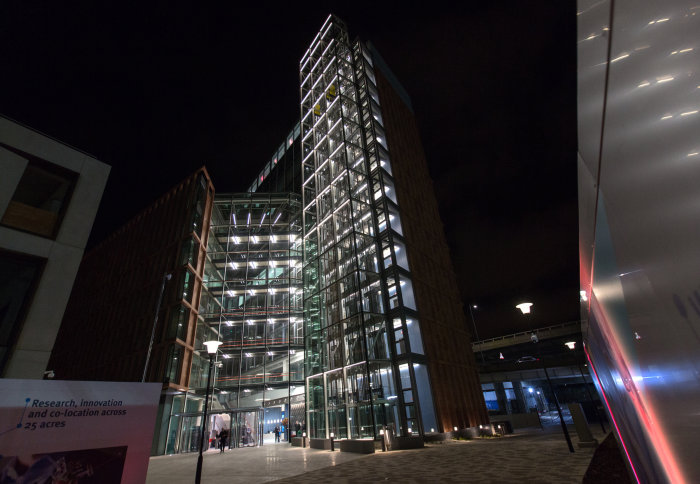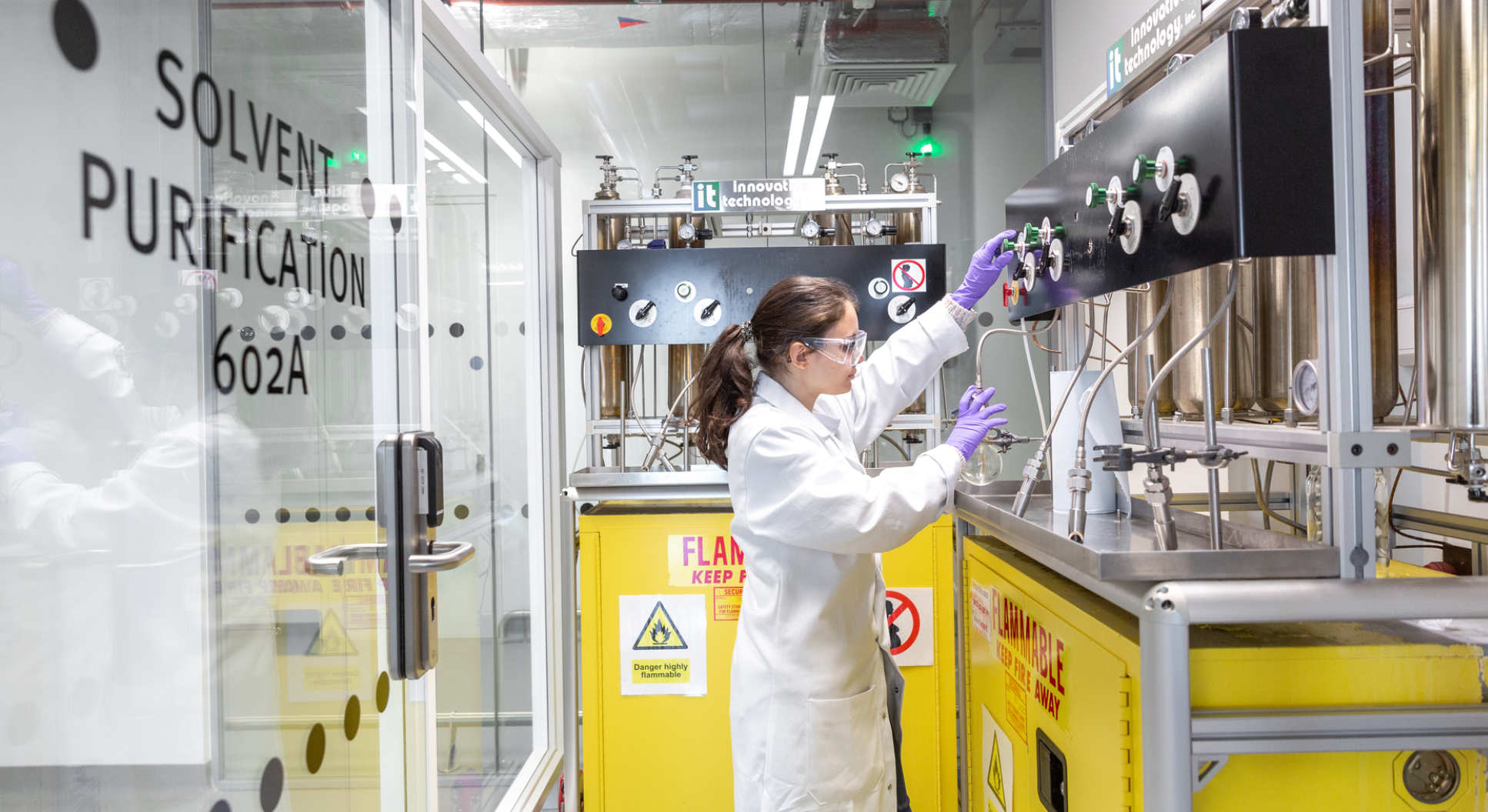‘Harmful myths’ around UK commercialisation challenged

Imperial has developed new scale-up and co-location facilities in White City
The widely held myth that the UK is good at science and poor at exploitation “does not bear scrutiny”, two Imperial academics argue.
In a comment piece published by the Guardian, Professor David Gann, Vice President (Innovation), and Professor Nick Jennings, Vice Provost (Research and Enterprise) note that “the UK now exceeds the United States in numbers of spinouts formed, disclosures of discoveries, patents and licences.”

Professors Gann and Jennings write: “Britain’s deep science base, and the startups that emerge from it, are an economic boon. But more needs to be done. Policy makers should focus on how they cultivate the nation’s science and technology sectors – and the university system that powers them.
“Examine the clusters around Britain’s great universities and you’ll see the likes of DeepMind and Improbable, multi-billion dollar AI businesses formed by London and Cambridge academics and classmates; Autolus, an autoimmune cancer therapy from University College London (UCL); Ceres Power, a fuel cell company from Imperial College; gene sequencing firm Oxford Nanopore; and cybersecurity pioneers Darktrace.

“Such rapidly growing technology companies are essential to improving productivity and solving major societal challenges in healthcare, the environment, energy, infrastructure and security.
“The common ingredient, in the UK and around the world, is access to research-intensive universities. They have the professors and labs to educate future talent; they can work in collaborative partnerships with industry, and support, mentor and incubate start-ups.”
Accelerating the flow of ideas
Professors Gann and Jennings show that “The UK is no longer the sick man of commercialisation, but questions remain as to how it can realise the ambition of the industrial strategy to become ‘the world’s most innovative economy’. How can the flow of ideas be accelerated? What are the gaps that universities can fill? How can big business improve its receptiveness to new technology, and the ability to work with smaller cutting-edge technology companies?”

Part of the answer, the Imperial academics say, should be “substantial new support for the innovation clusters in major cities that are growing around research-intensive universities. The government needs to implement the industrial strategy’s sector deals, bringing together top-performing businesses and universities. The advent of a UK knowledge exchange framework will help keep a spotlight on performance. This is how we will meet the government’s laudable objective of the public and private sectors investing 2.4% of GDP in R&D by 2027.”
Article text (excluding photos or graphics) © Imperial College London.
Photos and graphics subject to third party copyright used with permission or © Imperial College London.
Reporter
Andrew Scheuber
Communications Division